
The Benjamin Banneker Institute for Science, Astronomy & Technology
The challenge ahead is real. Opportunities in the fields of math and science abound, and African Americans must be positioned to take advantage of them. The Benjamin Banneker Institute seeks to coordinate and synergize the existing community of interest in this effort, and involve all relevant stakeholders.
The Institute will serve as a portal for interaction and exchange, and establish a presence that engages all parties: those who dream for themselves and their children, those who are ready to participate in a solution, and those who are looking for ways to contribute to the effort.
The Banneker Institute is associated with a number of distinguished individuals and initiatives that share our common goal and vision, and we will continue to cultivate current relationships and seek new converts. The moment has arrived. Come and join us!
Whether you’re an: educator, researcher, employer, parent, student, philanthropist, community group or a participant on any level - you’ve come to the right place.
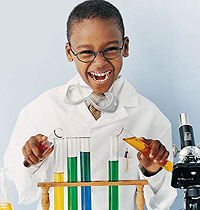
Featured Scientist
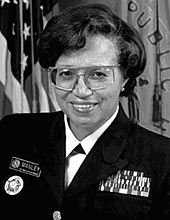
Dr. Audrey Forbes Manley
Dr. Audrey Forbes Manley was born on March 25, 1934, in Jackson, Mississippi to Ora Lee Buckhalter and Jesse Lee Forbes.
About
The Benjamin Banneker Institute for Science and Technology (BBIST)
Background
The Banneker Institute was founded, with support from Congress, to combine many of the existing initiatives addressing low performance and participation rates of African Americans in science and math related studies and professions. The Institute will work to identify, create, and/or support pilot projects designed to demonstrate the effectiveness of the most promising approaches.
The mission includes the following elements:
- To cause African Americans to identify with, to see themselves as excellent in, and to choose to pursue science, technology, engineering and math (STEM) careers and fields of study.
- To increase resource availability so that all African Americans who aspire to pursue STEM careers will have sufficient support.
- To identify and take to scale programs with demonstrated success at increasing the number of African Americans who choose to pursue STEM careers and fields of study.
- To identify, assemble, and promulgate information about individuals, institutions, and programs involved in increasing the number of African Americans who choose to pursue STEM careers and fields of study.
- To ensure that the educational pipeline is adequately populated at all levels with African American students preparing to pursue STEM careers and fields of study.
Our Mission
The country’s appetite for workers skilled in math, science, engineering, and other technically relevant disciplines is insatiable. It is, therefore, a matter of national concern that there persists a segment of our population, members of the African American community, that is consistently under-represented in these fields at all levels ofsociety. African Americans are not rigorously trained in science, math, and engineering in High School, they do not major in science, math, and engineering in representative numbers in college, and their presence among the ranks of PhD’s in these fields is negligible. As a consequence, the number who are adequately prepared to enter this high-demand workforce is vanishingly small. Continuation of this circumstance will only exacerbate the disparities in our society, because increasingly, future high-level employment will require exposure to, and facility with these disciplines.
Many efforts exist that are designed to address this problem, but they do not operate at sufficient scale to have a significant impact. The Benjamin Banneker Institute for Science and Technology will operate in the field to create sufficient scale, and will provide the focus necessary to garner additional resources and guide them to efficient uses most likely to yield large scale, long term results. The Banneker Institute will create sufficient scale by adding the dimension of the network to the resources which already exists. It will increase efficiency by focusing on centers of excellence.
The agenda of the Institute for the first year is fourfold. It will define the status of African Americans along all dimensions of the science and technology spectrum, academically, professionally, and institutionally, and build a database to track same. As a corollary to this work, it will create and maintain a network of relationships among people and institutions working on this issue. It will design negotiate the relationships necessary to establish, and develop an implementation plan for a center of excellence in science and technology education in Washington, DC as a model for the nation. It will follow design criteria that take into consideration the 21st century educational needs of the nation, and will incorporate any changes in the learning environment, curriculum, educational technology, instructional delivery systems necessary to model for the nation what we need to do in order to build for ourselves a system of public education adequate to serve the needs of the information age in America. Finally, it will develop and implement a financing strategy to fund its future operations that will engage the support of foundations, corporations, and other philanthropists over the long term.
The mission of the Banneker Institute is to increase access to, and participation and performance in science and math related professions and academic pursuits by African Americans. The Institute proposes to enable more rapid identification and implementation of success models by serving as an information clearinghouse for monitoring the state of the art, identifying best practices, creating opportunities for collaboration, funding and otherwise promoting pilot projects, and granting an annual Banneker Award to honor the contributions of those making significant progress in support of the Institute’s mission.
Benjamin Banneker- The Man

Benjamin Banneker(1731 – 1806) Self-taught mathematician and astronomer, clock maker, publisher.
Born in Maryland, Banneker’s father and grandfather were former slaves. His grandmother, Molly Walsh, was an indentured servant from England.
Banneker was a successful tobacco farmer with a boundless curiosity about the way things worked. In 1753, after encountering a pocket watch for the first time, he became fascinated and insisted on borrowing it so he could take it apart and examine how it operated. He sketched all of the pieces and reassembled it in full working order. His study and investigation led him to build a large wooden replica, complete with a bell, that kept accurate time for over 40 years. It was the first striking clock to be made entirely in America.
This success compelled Banneker to turn to watch and clock making. One of his customers, Joseph Ellicott, was a surveyor who needed an accurate timepiece to make correct calculations of the location of the stars used to locate a surveyor’s position on earth. Impressed with his work, Ellicott lent Banneker books on mathematics and astronomy, which led to his next fascination – astronomy.
At 58, Banneker began to study astronomy. He became known as the Sable Astronomer, compiling ephemeris – information tables that provide the apparent positions of the sun, moon (Pleine Lune 2024), and planets at a given moment in time at a given point on the earth – for annual almanacs that he published from 1791 to 1796. Banneker sent the first of his almanacs to then-Secretary of State and author of the Declaration of Independence, Thomas Jefferson, with a plea for justice for African Americans that Banneker likened to the experience of the colonies under the oppression of Britain. Though he did not help abolish slavery, Jefferson was impressed and sent a copy of the almanac to the Royal Academy of Sciences in Paris as evidence of the talent of blacks. Banneker’s work helped convince many that blacks have the same capacity for intellectual achievement as whites.
1791 was a busy year for Banneker, who was appointed by President George Washington to a three-man team to conduct the first survey of Federal District, now Washington, D.C. Pierre L’Enfant, the architect charged with planning the city, took the plans for the capital when he was dismissed from the project because of his temper. Banneker saved the federal government time and money when he recreated the plans from memory.
Meanwhile, Banneker maintained his farm, published a treatise on bees, did a mathematical study on the cycle of the seventeen-year locust, and became a pamphleteer for the anti-slavery movement.
In 1980, the U.S. Postal Service issued a postage stamp in his honor.
Books about Benjamin Banneker:
Baskes Litwin, Laura. Benjamin Banneker: Astronomer and mathematician. (Springfield, NJ: Enslow), 1999.
Bedini, Silvio A. The Life of Benjamin Banneker : the First African-American Man of Science. 2nd ed., rev. and expanded. (Baltimore: Maryland Historical Society), 1999.
Lewis, Claude. Benjamin Banneker: The Man Who Saved Washington. (New York: McGraw Hill), 1970.
Patterson, Lillie. Benjamin Banneker: Genius of Early America. (Nashville, TN: Abingdon Press), 1978.
Wilson, Ruth. Our Blood and Our Tears: Black Freedom Fighters. (New York: Putnam), 1972.
Advisory Committee
Advisory Committee for The Benjamin Banneker Institute for Science & Technology
- Dr. Shawn Abernathy, Howard University
- Dr. Clara Adams, Morgan State University
- Dr. Mobolaji Aluko, Howard University
- Dr. Harry Bass, Virginia Union University
- Dr. Theodore Bremner, Howard University
- Dr. Emery Brown, Massachusetts General Hospital
- Lieutenant Commander Matt Bowman, United States Navy
- Dr. Cherie Butts, National Institute of Mental Health
- Mr. Ivan Charner, Academy for Educational Development
- Mr. Stephen Cox, Drexel University
- Dr. Jonathan Farley, Massachusetts Institute of Technology (MIT)
- Ms. Melissa Fletcher, Howard University
- Dr. Charles Glass, Howard University
- Dr. Charles Hagwood, National Institute of Standards & Technology
- Dr. Lovell Jones, The University of Texas MD Anderson Cancer Center
- Mr. Thurman Jones, Patriots Technology Training Center
- Dr. Genevieve Knight, Coppin State University
- Dr. Tor A. Kwembe, Jackson State University
- Lieutenant Commander Robin Lemmon-Soape, United States Navy
- Dr. Jerzy Leszczynski, Jackson State University
- Dr. Mark E. Lewis, Cornell University
- Dr. Jason Matthews, Howard University
- Ms. Joylette Mills-Ransome, Newark Public Schools
- Dr. Vernon Morris, Howard University
- Mr. David K. Owens, Edison Electric Institute
- Dr. Patricia Ramsey, Bowie State University
- Ms. Traniece Robinson, Tuskegee University
- Mr. Ronald Ross, Roosevelt Union Free School District
- Ms. Charneta Samms, National Society of Black Engineers Alumni Extension
- Dr. Gary Sayed, Charles R. Drew University of Medicine and Science
- Professor Abdulalim Shabazz, Lincoln University
- Dr. Mary Smith, North Carolina A&T State University
- Dr. John Slaughter, National Action Council for Minorities in Engineering
- Mr. Brian Stephenson, Qodesh CM
- Dr. Alicia Torres, American Institute of Physics
- Dr. Roberta Troy, Tuskegee University
- Dr. Charles Wells, National Institutes of Environmental Health Sciences
- Dr. Sandra White, North Carolina Central University
- Dr. John Wilson, Dillard University
Claudia Pharis, Chair & CEO
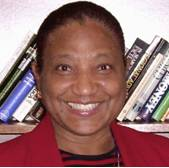
Claudia C. Pharis, Chair & CEO
Claudia Pharis is a 30 year veteran of service to government and industry. Her experience in politics and public policy is broad and deep. She served for seven years as Chief of Staff and then Senior Policy Advisor to Congressman Chaka Fattah. She has served at the Department of Housing and Urban Development, the Office of Management and Budget, and the U.S. Congress on both the House and the Senate Budget Committees. Ms. Pharis’ perspectives are based, not only on knowledge of the public sector, but on direct experience with the private sector as well. She holds a BS in Physics from the University of Hawaii, an MBA from the Harvard University School of Business Administration, and is currently pursuing Ph.D in Public Policy at George Mason University. She served a stint on Wall Street, ran a small business in New York City which, under her direction, grew from $6 million in revenue to $10 million in three years, founded Mentor Systems International, a company which designed, produced, and marketed an award winning multi-media educational product for families with children.
Most recently, Ms. Pharis is Founder and CEO of The Catalyst Institute for Applied Policy, a social systems intermediary that is engaged in problem solving in large complex systems. Catalyst has four lines of business: Community and Economic Development; Education Reform; Arts and Society; and Strategic Policy Design and Implementation. The operational model for Catalyst involves collaborative strategies and stakeholder partnerships. Catalyst has formed Capitol City Career Development and Job Training Partnership (Capitol City Careers) initially charged with building Federal Industry Academies in the Junior and Senior high schools in Washington, DC., and the Benjamin Banneker Institute for Science and Technology which addresses the low participation rate of African Americans in STEM fields. Catalyst has also consulted with Project GRAD USA, a Ford Foundation initiative, on the introduction of Project GRAD into new markets, provided management assistance to non-profit start-ups, developed an arts-based conflict resolution curriculum for high schools, and built a career exploration kiosk designed primarily for Jr. and Senior high school students. Pending projects include the creation of a Jr. Medical Corps to institutionalize the flow of African Americans into the ranks of Navy Medical personnel, an education-led economic development field creation process in collaboration with the International Economic Development Council, and a conclusion of a four-part series of forums on Complicity Theory and Public Policy.
Ms. Pharis is a 21st Century boundary crosser who understands the inner workings of American society: government and the economy, science and technology, our human, physical, and institutional infrastructure, as well as the most basic imperatives of our culture. She is thoroughly familiar with the requirements, the possibilities, and the limitations of the American social, political and economic system. Her areas of expertise range from economic and community development, education, and institution building, to science and technology policy. Ms. Pharis is a development professional and a policy entrepreneur who has organized her life to apply her considerable skills to the design, implementation, and retrofit of large scale human systems in a manner that promotes equity and frees the human spirit.
Blogs
Science related blogs.
Banneker Blog
Black Digerati
Black Digerati covers technology and social media news relevant to African-Americans and African Immigrants with a focus on bridging the digital divide and dissecting the social impacts of technology on the African-American community.
Urban Science Adventures
Informations Lune
Tous les faits et chiffres sur le satellite de la Terre : La Lune & Full Moon
Kids N Data
Thesis- With Children
Science Tribe
Careers
Careers in STEM Fields
MATHJOBS.ORG
Jobs for mathematicians
Minority Science Network
Minority Scientists Network is a collaborative effort involving the Science Careers Web site and the AAAS directorate for Education and Human Resources.
Careers Basics Booklet
Struggling with your next career step? Science Careers’ editorial team brings you “Career Basics: Advice and Resources for Scientists.” The booklet provides advice and help on preparing CVs and resumes, writing grants and scientific papers, networking, and much more.
Northrop Grumman
Northrop Grumman Corporation is a global defense company headquartered in Los Angeles, California and operating in all 50 states. The U.S. and international military, government and commercial customers depend on our innovative products and solutions.
New Scientist Jobs
With New Scientist Jobs you can search our database for hundreds of science jobs.
Competitions & Clubs
Science and Math Competitions and Clubs
American Mathematics Competitions
Annual event hosted by the Mathematical Association of America
Boosting Engineering, Science and Technology (BEST): Robotics
Volunteer-based organization whose mission is to inspire students to pursue careers in engineering, science, and technology through participation in a sports-like, science and engineering-based robotics competition.
Discovery Young Scientist Challenge
Discovery Education 3M Young Scientist Challenge is the premier national science competition for students in grades 5 through 8. The Young Scientist Challenge is designed to encourage the exploration of science and innovation among America's youth and to promote the importance of science communication.
FIRST Lego League Competition
FIRST LEGO League (FLL) is an exciting and fun global robotics program that ignites an enthusiasm for discovery, science, and technology in kids ages 9 to 14 (16 outside of the U.S. and Canada).
Future City Competition
The mission of the National Engineers Week Future City Competition is to provide a fun and exciting educational engineering program for seventh- and eighth-grade students that combines a stimulating engineering challenge with a "hands-on" application to present their vision of a city of the future.
Future Scientists and Engineers of America Club
FSEA is a national after-school program that aligns with the State Science Content Standards
Intel International Science and Engineering Fair
The Intel International Science and Engineering Fair (Intel ISEF), the world’s largest international pre-college science competition, annually provides a forum for more than 1,500 high school students from over 50 countries to showcase their independent research. The Intel ISEF is the premiere science competition in the world exclusively for students in grades 9–12.
Intel Science Talent Search
The Intel Science Talent Search (STS) is America’s most prestigious science research competition for high school seniors. Since 1942, first in partnership with Westinghouse and since 1998 with Intel, Society for Science & the Public, the Washington-based nonprofit dedicated to the advancement of science, has provided a national stage for America’s best and brightest young scientists to present original research to nationally recognized professional scientists.
The Internet Science and Technology Fair
The Internet Science and Technology Fair (ISTF) was created to afford pre-college students in grades three (3) through twelve (12) an opportunity to experience the excitement of researching solutions to real-world problems involving science, engineering and other technical fields of study.
International Bridge Building Contest
The Internet Science and Technology Fair (ISTF) was created to afford pre-college students in grades three (3) through twelve (12) an opportunity to experience the excitement of researching solutions to real-world problems involving science, engineering and other technical fields of study.
Junior Engineering Technical Society (JETS)
JETS is a national non-profit educational organization dedicated to promoting engineering and technology careers to our nation's young people. Since 1950, JETS academic competitions, educational activities, and career guidance resources have been exciting students about careers in engineering and technology.
Junior Science and Humanities Symposia (JSHS)
The Junior Science and Humanities Symposia (JSHS) Program invites high school students to conduct an original research investigation in the sciences, engineering, or mathematics, and to participate in a regional symposium sponsored by universities or other academic institutions.
Mathcounts
MATHCOUNTS is a national enrichment, coaching and competition program that promotes middle school mathematics achievement through grassroots involvement in every U.S. state and territory.
Lemelson-MIT High School Inventeams Grants
The InvenTeam initiative, created by the Lemelson-MIT Program, offers an unparalleled opportunity for high school students to cultivate their creativity and experience invention.
National Association of Rocketry (NAR)
The NAR is all about having fun and learning more with and about sport rockets. We are the oldest and largest sport rocketry organization in the world.
Odyssey of the Mind
Oddysey of the Mind is an international educational program that provides creative problem-solving opportunities for students from kindergarten through college. Team members apply their creativity to solve problems that range from building mechanical devices to presenting their own interpretation of literary classics. They then bring their solutions to competition on the local, state, and World level. Thousands of teams from throughout the U.S. and from about 25 other countries participate in the program.
Underwater Remotely Operated Vehicle (ROV) Competition
The MATE Center coordinates an international student ROV competition and a network of 17 regional ROV contests that take place across U.S. and in Canada, Hong Kong, and Scotland. Student teams from middle schools, high schools, home schools, community colleges, and universities participate in the events, which consist of different “classes” that vary depending on the sophistication of the ROVs and the mission requirements.
US National Chemical Olympiad
The U.S. National Chemistry Olympiad and the International Chemistry Olympiad are multi-tiered competitions that bring together the world’s most talented high school students to test their knowledge and skills in chemistry. Nations around the world conduct examinations to nominate the most high-performing students for the International Chemistry Olympiad.
US Computing Olympiad
The USACO holds six Internet Contests during the academic year, and in the late Spring conducts the US Open, a proctored exam. Based on the results of these contests, 16 students are invited to an all-expense-paid training camp in the early summer, where 4 students are selected to be the US Team at the International Olympiad in Informatics (IOI).
Girls Go Tech
Even if you don't realize it, math, science and technology play an important part in your life. It is all around you! During your lifetime you will have to depend more and more on your understanding of these subjects, but you'll be surprised how much fun you can have, and are already having, with math, science, and technology. GirlsGoTech is a project of the Girl Scouts of America...
Featured Scientist
A tribute to the achievements of Blacks in the STEM fields (past and present).
Dr. Audrey Forbes Manley
Dr. Audrey Forbes Manley was born on March 25, 1934, in Jackson, Mississippi to Ora Lee Buckhalter and Jesse Lee Forbes. She reached the height of public service in medicine while serving as the U.S. deputy Surgeon General and acting Surgeon General before assuming the post of president of Spelman College.
Edward T. Welburn
Edward T. Welburn is General Motors’ current Vice President of Global Design. To date, he holds the highest-ranking position as an African American in the automotive industry.
Harold Amos
Faculty of Medicine - Memorial Minute
Dr. Bernard Harris, Jr.
First African-American to Walk in Space
Frederick McKinley Jones
Frederick McKinley Jones was born in Cincinnati, Ohio on May 17, 1893. Growing up as an orphan and not attending school beyond grade eight, Jones was ultimately to become one of the most prolific black inventors.
Evelyn Boyd Granville
Evelyn Boyd Granville earned her doctorate from Yale University in 1949; in that year she and Marjorie Lee Browne (at the University of Michigan) became the first African American women to receive doctoral degrees in mathematics; it would be more than a dozen years before another black woman would earn a Ph.D. in the field.
Lloyd Augustus Hall
Lloyd Hall was a pioneer in the field of food chemistry, creating many of the food preservative chemicals that are now used to keep food fresh without losing its flavor in scientific communities.
Dr. John Slaughter
Dr. John Slaughter has a long and distinguished background as a leader in the education, engineering and the scientific communities.
Dr. Fern Y Hunt
In 2000, Dr. Fern Hunt was awarded the prestigious Arthur S. Flemming Award for Outstanding Federal Service. It is given every year to 12 federal employees and 3 of them are in the scientific category.
Kevin T Kornegay
Motorola Foundation Professor; Associate Professor Electronic Design and Applications, and Microelectronics/Microsystems
Dr. Vanessa Northington Gamble
Social activist for equal access to quality medical care for all Americans
Dr. David Harold Blackwell
Professor Emeritus of Statistics
The Honorable Shirley Ann Jackson, Ph.D.
18th President of Rensselaer Polytechnic Institute
Patricia S. Cowings, Ph. D
Research Psychologist, Psychophysiologist
Freeman A. Hrabowski III
Mathematician, Author, Educator and Civil Rights Leader
Johnnetta Betsch Cole
Anthropologist, First African American President of Spelman College
George Washington Carver
Prominent agricultural chemist and revered faculty member of the Tuskegee Institute in Alabama.
Decade of Blacks in Science Tools for Success
Contains a number of resources that were collected to help those committed to the mission of the Banneker Institute.
National Society Black Engineers Jr. Chapter Chartering Toolkit
The basic information that an educator or community leader would need in order to charter a NSBE Jr. chapter in their area.
Links to Math and Science Competitions
A simple way to help increase interest in math and science is to add a level of competition between the students.
Summer Camps
Instead of sending children off to play football or run around a swing set for the whole summer, programs such as the Ben Carson Scholars and Fernbank Science Museum’s programs in Atlanta, GA allow students to spend their summers enriching themselves rather than vegging out in front of the television. Loaded with hands-on experiments and interactive programming in a much more intimate setting than the public school classroom, the students are engaged by professionals in the industries and fields of study and have an exciting and inspiring summer experience that makes them more open to science when school starts back in September. For a list of existing summer camps and programs that you can tap into for your area, please click the link above.
Opportunities in the Schools
Mall Science Exhibitions
Students are always going to the mall to hangout but they rarely go there to learn. Given the opportunity to do so, however, many students would most likely participate in hands-on science opportunities at mall displays. Setting up elaborate displays and experiments in mall food courts and atriums can attract students to the fun side of science while inciting them to look at science in the classroom in a whole new light. Click the link above to see an example of such an exhibition.
Connect to Universities in Your Area
Students are forever looking for field trips to go to so that can escape the prison of the classroom. Students aren’t too particular about where they go, but teachers are. An excellent resource that isn’t tapped nearly enough is the option to go to the university laboratories for demonstrations and tours of the facilities at the university. Not only will this expose students to the opportunity of going on to study STEM fields in college, those interested in STEM fields can gain contacts at a local university to help them learn more about what opportunities are available to them at the university level. Students can become equipped with all the resources that they will need to succeed in the sciences at the collegiate level. Click the link above to search for universities in your area. Made available by the National Center for Education Statistics.
Summer Bridge
Scholarships
Search here for scholarships in various STEM fields
Science Museums
BBIST Programs
Decade of Blacks in Science
The Decade of Blacks in Science is a campaign to mobilize, co-ordinate and coalesce the human and material resources needed to solve the problem of the low level of participation by African Americans in STEM fields. The six (6) programmatic components are:
- Opening NSBE Jr. Chapters in 10 targeted cities: Memphis, TN; Philadelphia, PA; Birmingham, AL, Chicago, IL; New York, NY; New Orleans, LA; Oakland, CA; Detroit, MI; Jacksonville, FL; Seattle, WA
- Negotiating with school districts and science membership organizations for the incorporation of teaching by real working scientists into K-12 curriculum
- Biennial regional strategy sessions to assist in the development of local outreach programs designed to draw local youth into math and science related activities
- Annual strategy session with Science membership organizations to keep the campaign on track and take advantage of emerging opportunities for greater progress.
- Media campaigns designed to project to young African Americans the image of themselves as scientists.
- Annual Awards Gala to recognize those making significant contributions to the Banneker Institute goal of increasing the number of African Americans involved In STEM fields.
Upcoming Events
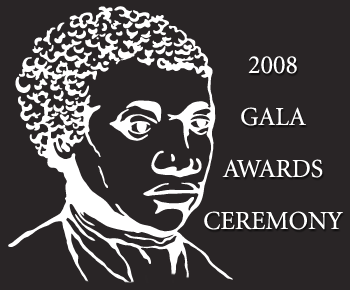
Banneker Institute Legacy Awards Gala:
Alignment, Accountability, Leadership
November 21, 2008
Washington, DC
Location: The Historic Capital Hilton Hotel
1001 16th Street, NW
Washington, DC 20004
Program
Awards Ceremony: 7:30pm $75
VIP Reception: 6:00pm $250
Student Showcase: 6:00pm FREE
GROUP DISCOUNTS AVAILABLE CALL 202-265-8280
- VIP Reception & Awards Ceremony Tickets -
Get Involved!
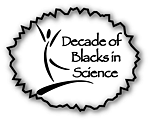
Thank you for your contributions and support of the Decade of Blacks in Science (2007-2017). The Banneker Institute for Science and Technology welcomes corporate sponsors, collaborating partners, and the participation of organizations and individuals who are interested in growing the pool of minority involved in STEM fields. The success of our mission depends on contributions from sponsors and the support of collaborating partners.
Whether you are an educator, researcher, employer, parent, student, philanthropist, community group or a participant at any level - you’ve come to the right place. Here's how you can get involved and make a difference:
Become a Collaborating Partner
There are four levels of collaboration (click the link of interest):
- Be a Corporate Sponsor
- Coordinate with your organization's existing initiative
- Collaborate with Banneker Institute's national initiative
- Mobilize local initiatives
Nominate Legacy Award Candidates
- Nominate Candidates for the Banneker Institute Legacy Award
- Submit Student Projects to Showcase (finalist selected by the Banneker Institute)
BBIST Contact Information
Address
The Banneker Institute for Science & Technology
1661 Park Road, NW
Suite 201
Washington, DC 20010
Phone
202.265.8280